It was 2012. The year my Grandma asked, “Are they savages?” The year I spent two months on the edge of the sierra and the rainforest, caught somewhere in between. The year I careened down la ruta de las cascadas with Vincente and asked him about a billboard that we passed. “Petrol unites communities,” it insisted and it showed a group of dark skinned people smiling with straight white teeth, their arms around each other like a fútbol team.
A can of black spray paint added some extra words. “Petrol=death.”
2012 was the year I saw the Devil’s Nose, the year I tasted lime flavored ants on the tip of my tongue, the year I ate half a guinea pig and the year I realized I did not want to be on the opposite side of that chain linked fence.
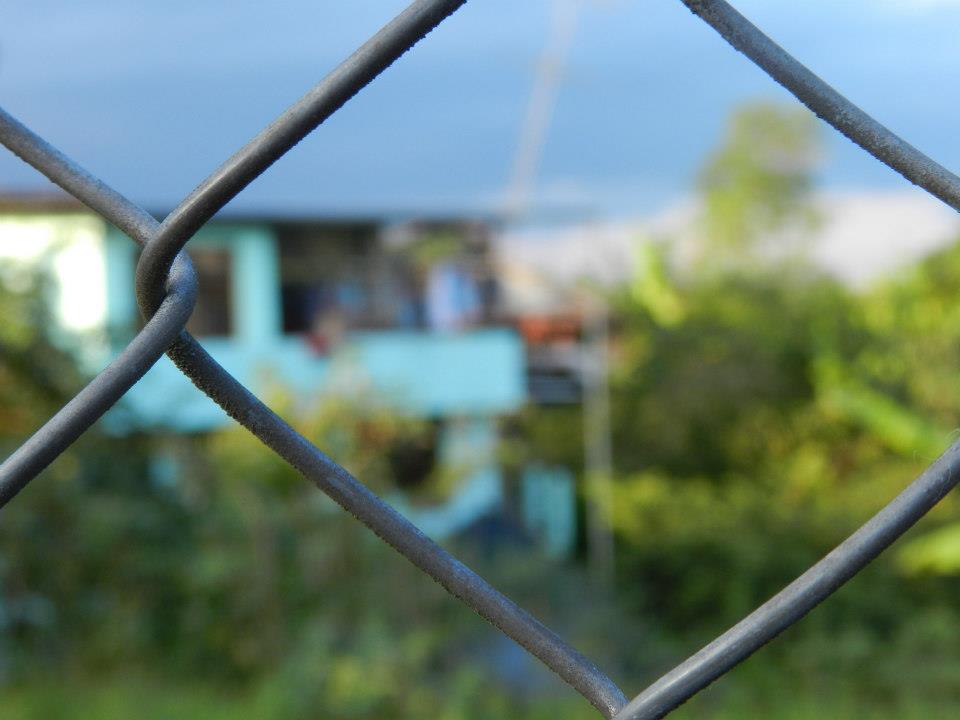
So many images and words and chest tightening feelings make up that year.
It was the year I left my first home in Kansas City, the year I learned about drip tape and how to weed carrots (oh so tenderly) and that I didn’t want to be a nurse but I didn’t exactly want to be a farmer, either.
It was in that state of either-ness that I flew South looking for some light.
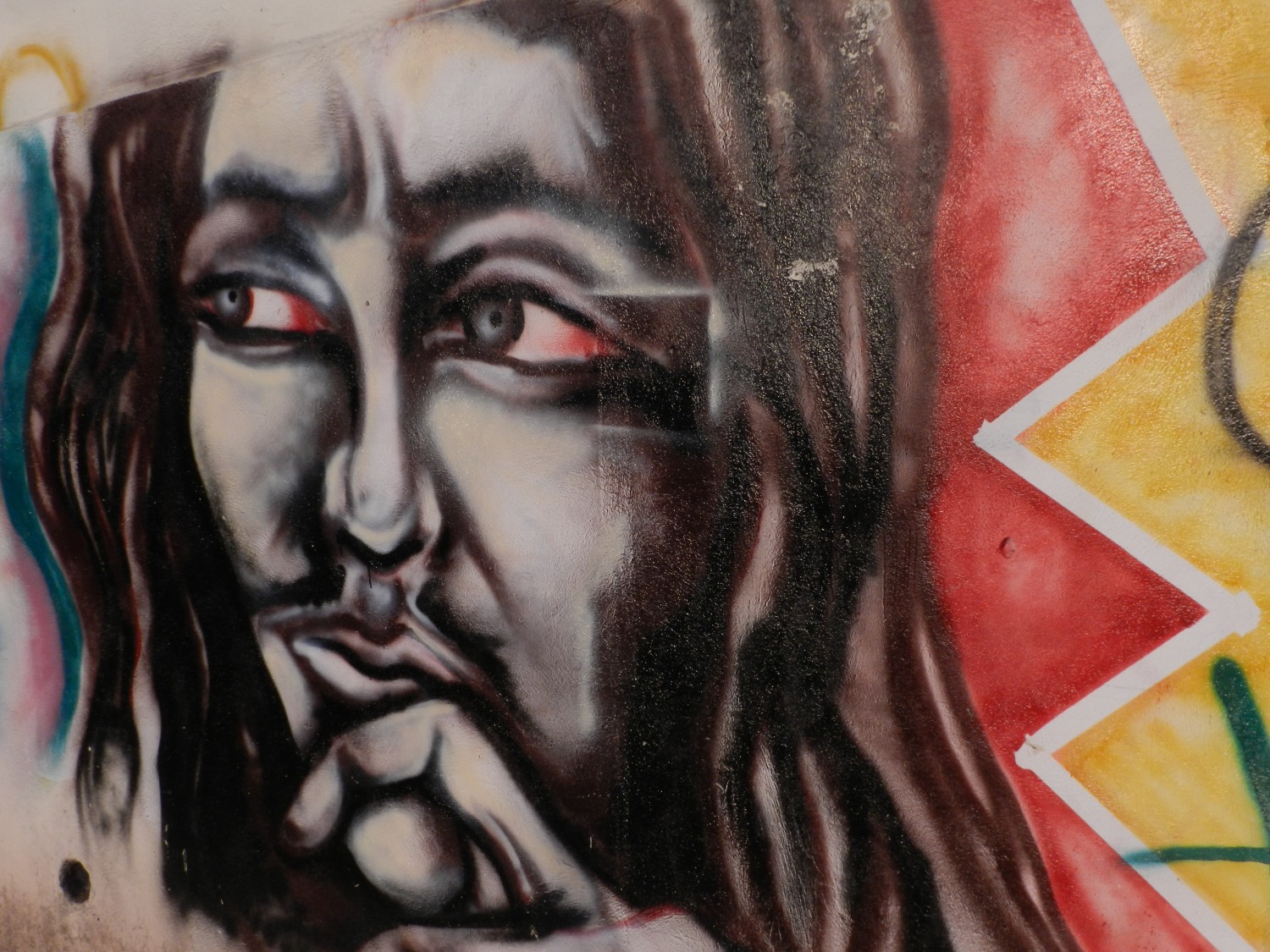
“Quito se llama ‘La luz de America,’ he told me and I thought that it wouldn’t hurt so much. This place of water pouring and dripping down verdant valleys and soft, smooth rocks rising up from craters with lava lakes and palms and monos and oil.
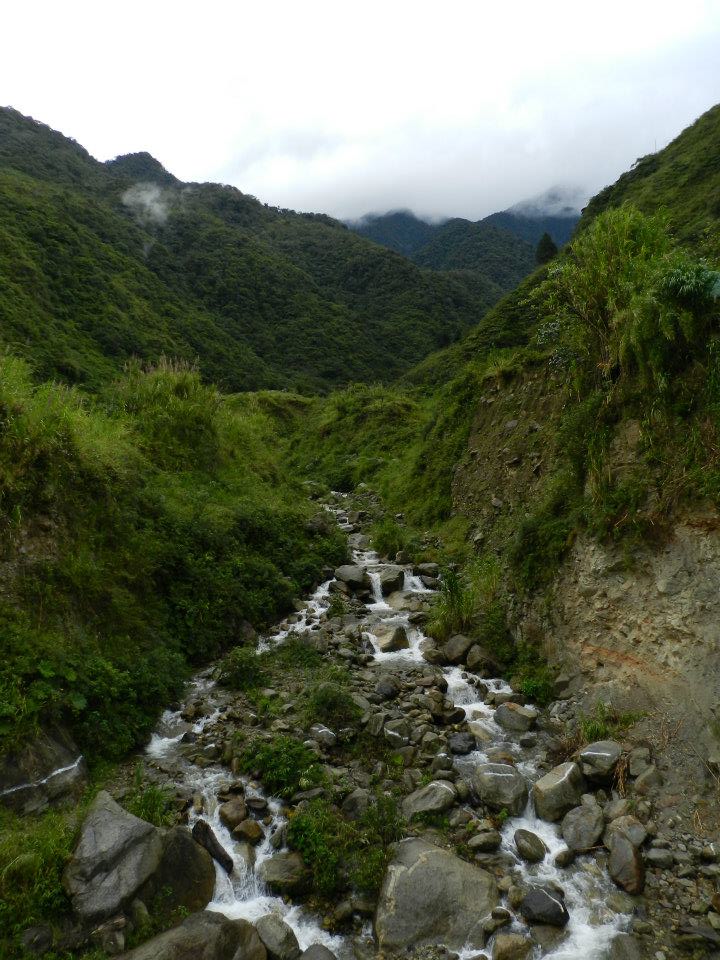
But it hurt.
Ecuador was the first place I traveled to alone. Like really alone. It was a litmus test. A sharpening, an arrow held taut against the heart strings of my life. I pulled and pulled until I couldn’t go back anymore. Until I wanted only to be free and only for everyone else to be free, too.
That pulling back, the sharpening. The way my tongue had to stumble on itself to say so many new words-words for volcanoes, for poison, for the struggle of humanity against itself.
Cotopaxi. Chimborazo. Tungurahua. Sangay. Quilotoa.
Waorani. Quichua. Achuar. Cofán. Tsáchila.
OPEC. Texaco. Chevron. Petroamazona.
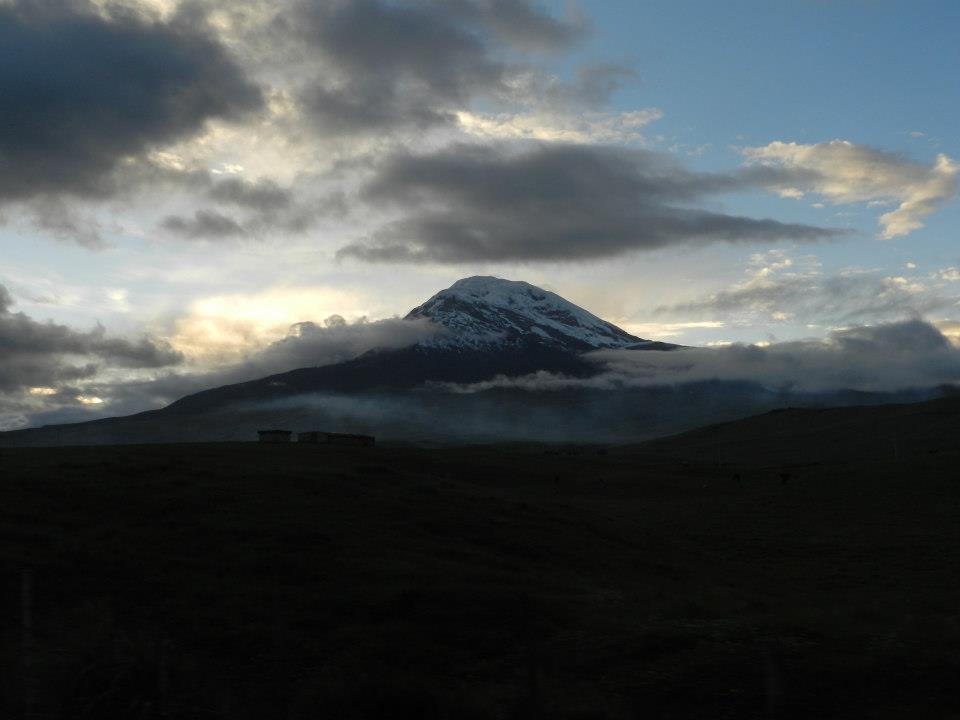
The strings sing and they squeeze and they cut.
It was five years earlier (in 2007) that Ecuador was faced with extreme poverty and pressure from oil companies ready to drill. At that time, “The oil sitting beneath the Ishpingo Tambococha Tiputini (ITT) oil fields at the eastern edge of Yasuní was worth an estimated $7.2 billion in 2007 prices. Correa’s initiative proposed to leave it in the ground, but he wanted the rest of the world to pay Ecuador for half of the oil’s value to do so.”
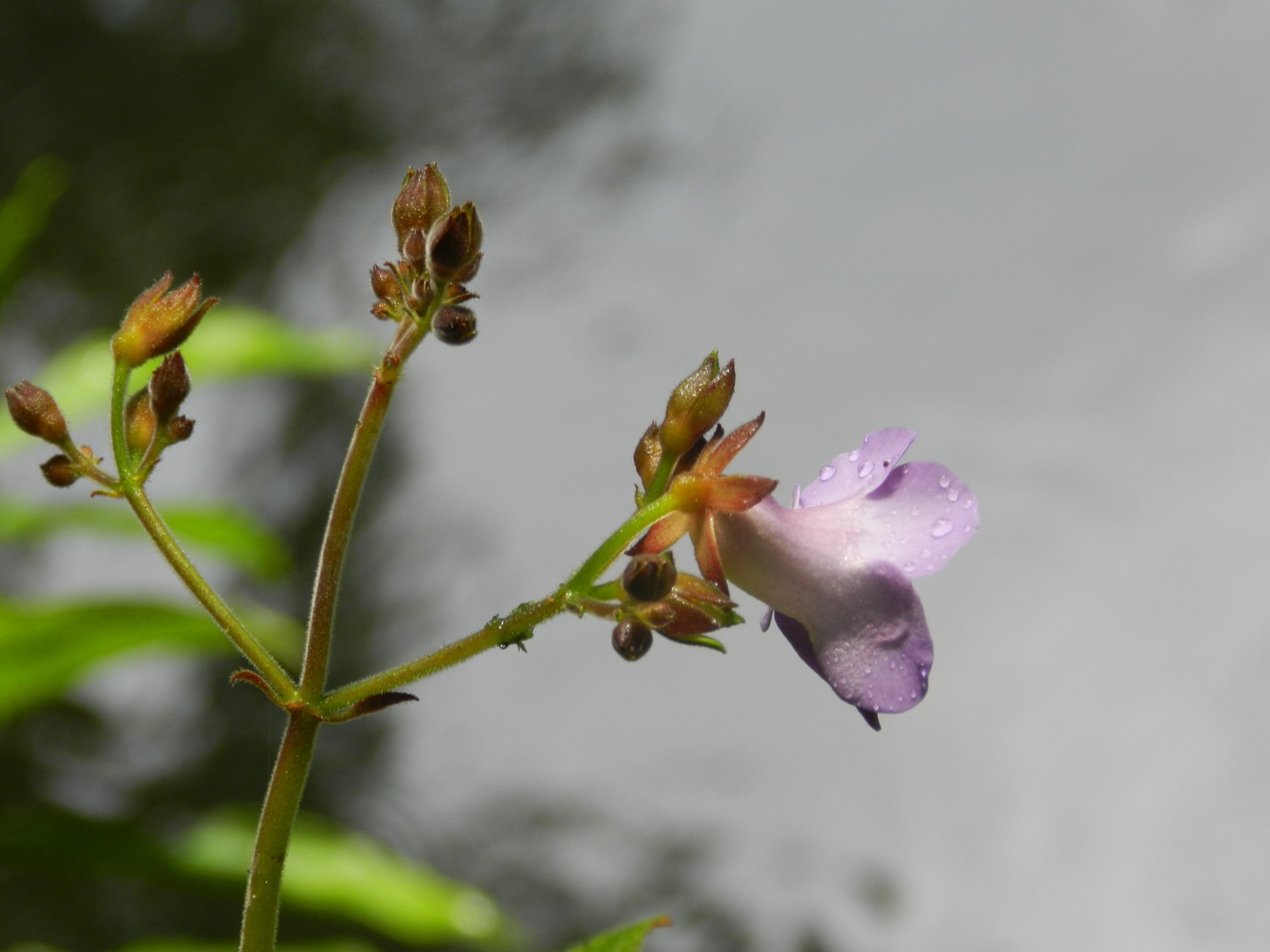
In response, President Correa sent this request to the rest of the world, “Ecuador doesn’t ask for charity, but does ask that the international community share in the sacrifice and compensates us … in recognition of the environmental benefits that would be generated by keeping this oil underground.”
By 2012 it was clear that the international community wasn’t strong or willing or unified enough to keep the word “petrol” out of the word community.
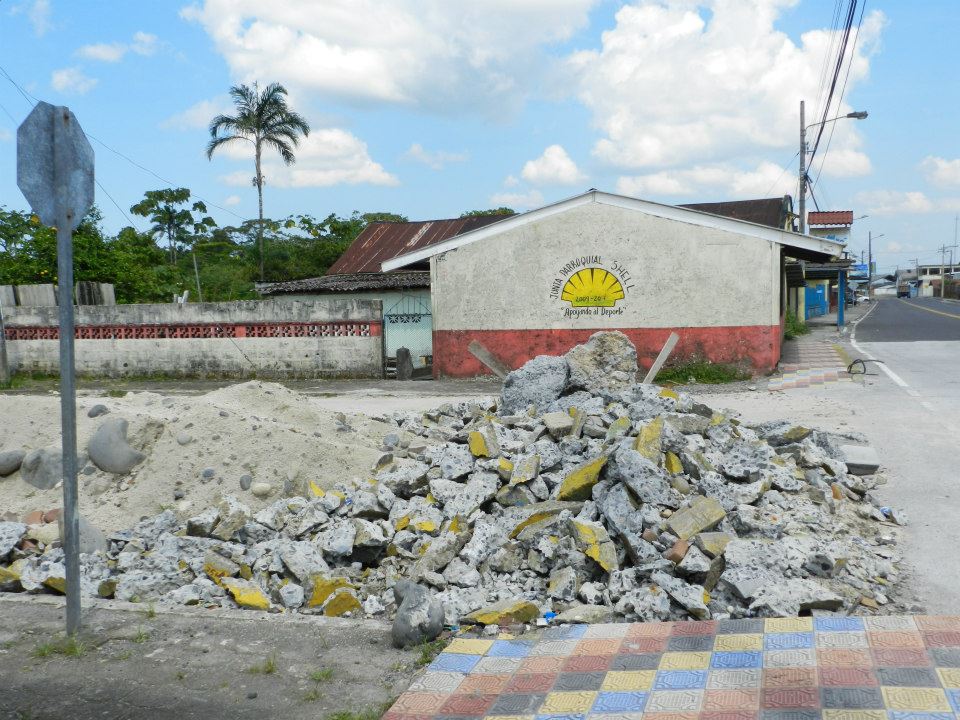
When I asked Vincente about the sign, about the truth and about the lie and about which was which, he didn’t exactly answer. Instead, he said this, “The oil companies are smart. They provide a lot of benefits the government can’t afford to offer its own people. They promise to build schools and provide free health care if the communities agree to allow them access into their sacred land. But the people have no resources but the land. They are bargaining with their lives.”
We breathe the rainforest. It is so close to the light. So close to the middle of everything.
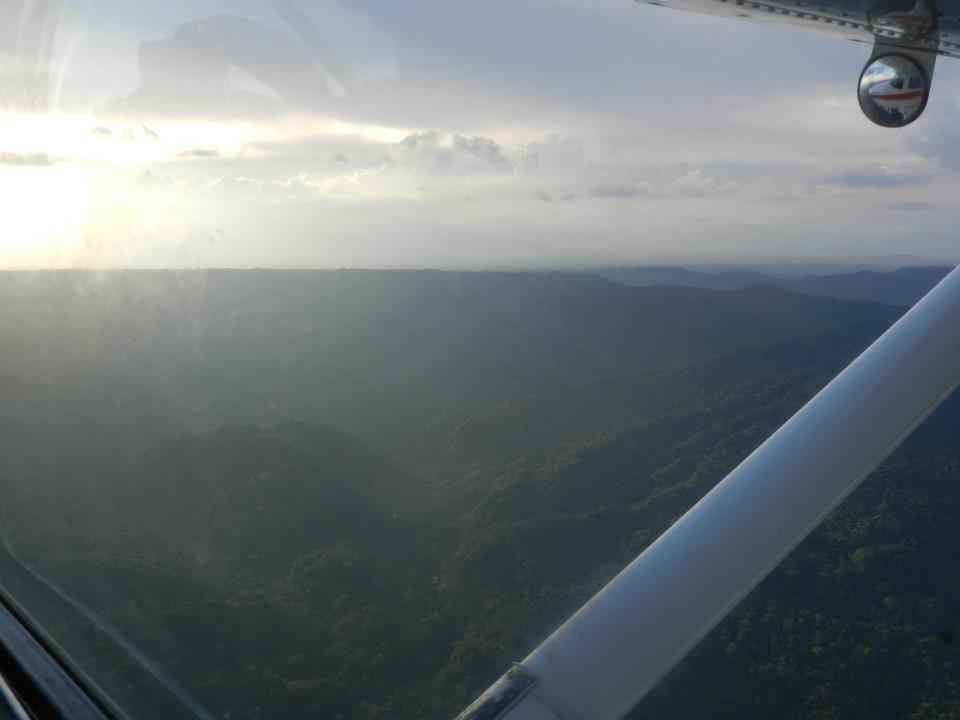
I flew over these forests. And I walked awestruck over the soft soil and heard the hush of the shadow of a tree that had seen eight centuries of life. Of war, perhaps and sorrow.
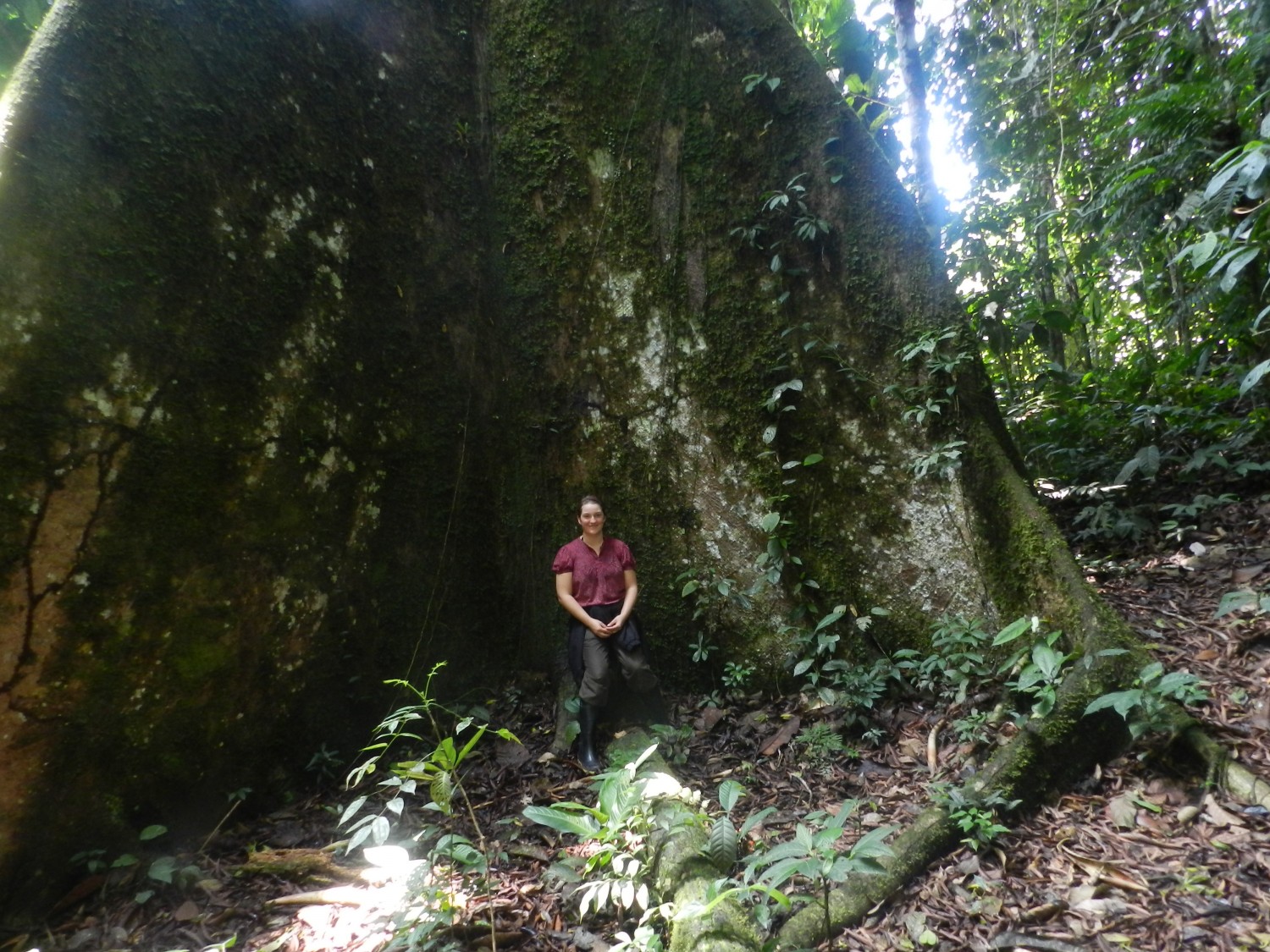
But not yet blades.
In 2012, “the Amazon rainforest was divided into 16 different oil blocks and put up for sale in an international oil auction.”
The newspapers do not sing or sting but they spill.
I flew over these forests, too. Marked by man, I saw the lines of detonation carved into raw mountains where liquid leaked from wounded stone. I passed ditches with broken limbs not yet set, with upheaved debris abandoned and bulldozers parked near the end.
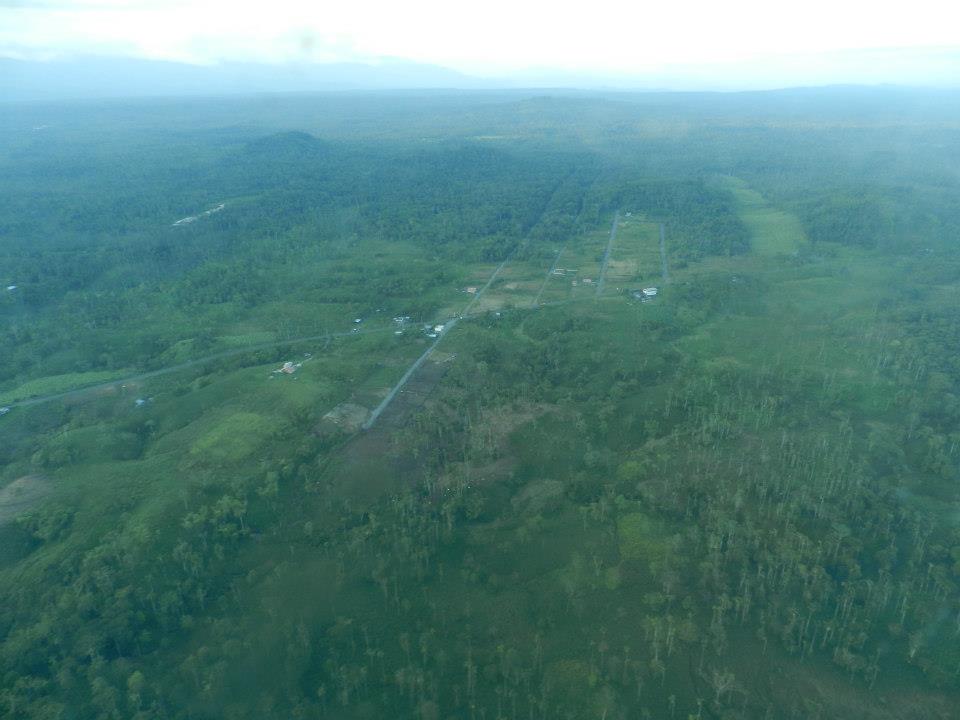
And I saw the poison snakes in jars. The ones that sometimes struck children whose families depended on the planes with the painted pictures of oil companies shining bright in the sky.
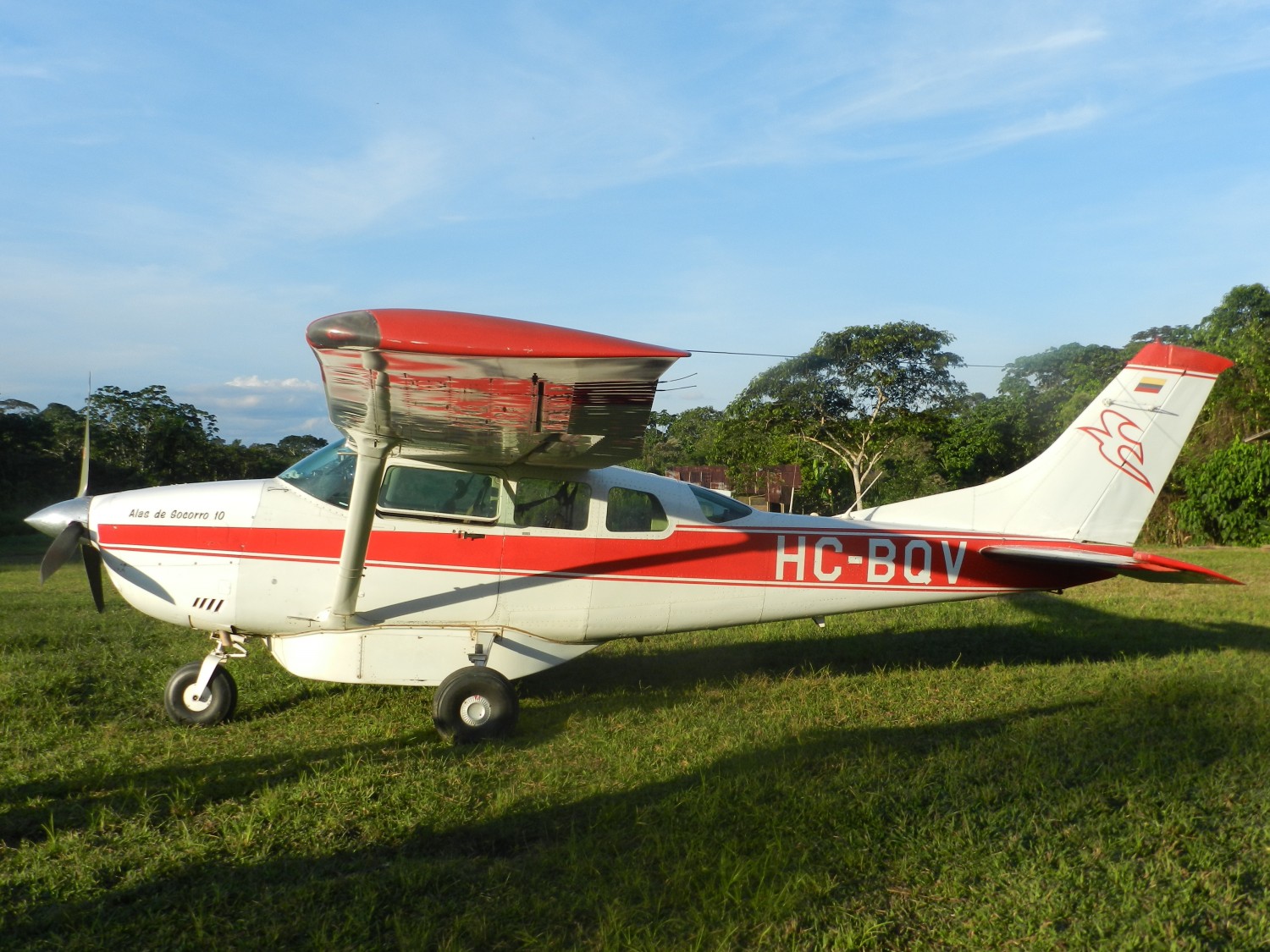
They came to rescue. And to destroy. Not one, but both.
And I saw some schools built, and maybe some roads too. And I wondered, “Did that school cost an hour’s worth of the amount of oil sucked from the soil?” “A minute?” “A second?”
And I still wonder.
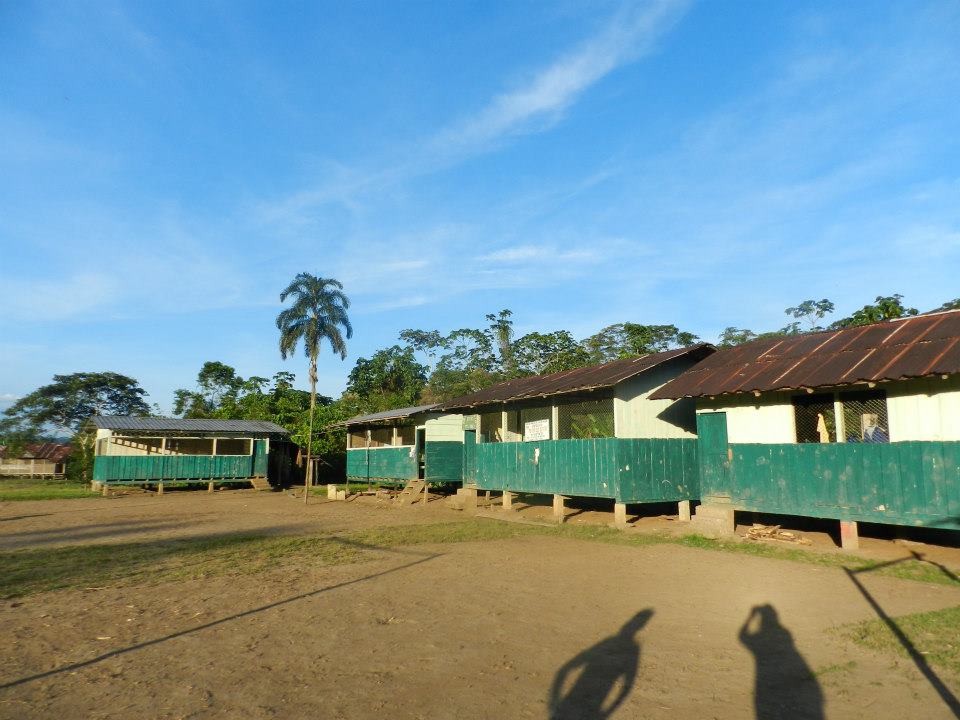
This week, I heard that the Waorani let their arrows fly straight. That they pulled and pulled until they couldn’t pull back anymore. That the sharpness of their wisdom and their resistance brought some small freedom. From the lie of petrol uniting communities and lungs clouded with cancer and forests drowning in oil.
For all of us.
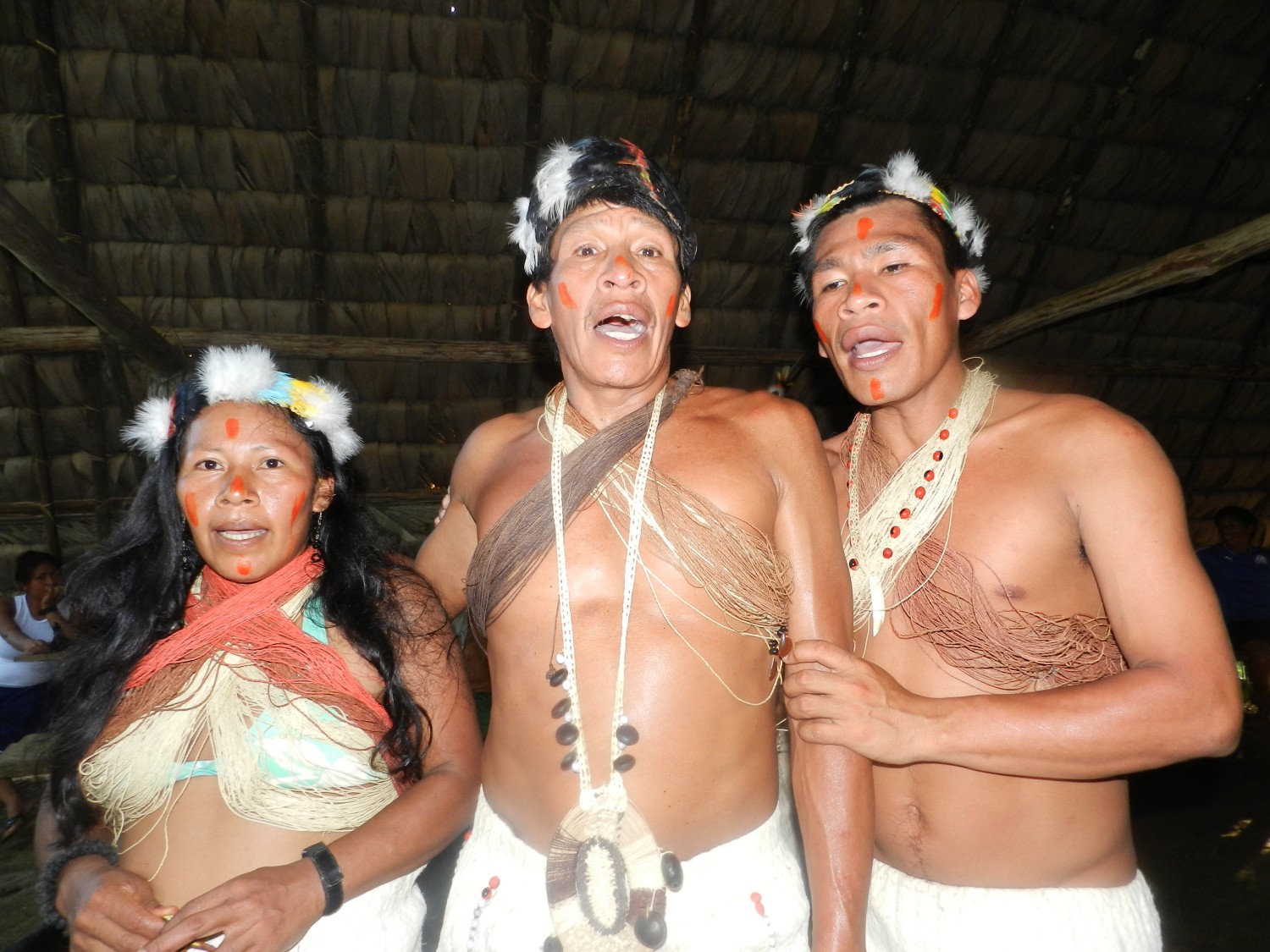
And I wonder why it didn’t make the front page of every cut down tree in the nation. Why their victory wasn’t multiplied for all of us to celebrate? I ask and I ask but I know the answer.
The year now is 2019. I am back home, not a nurse or a farmer, living with a different kind of either-ness, heart strings pulled taut. I still go looking for light but I am not afraid of what’s dark.
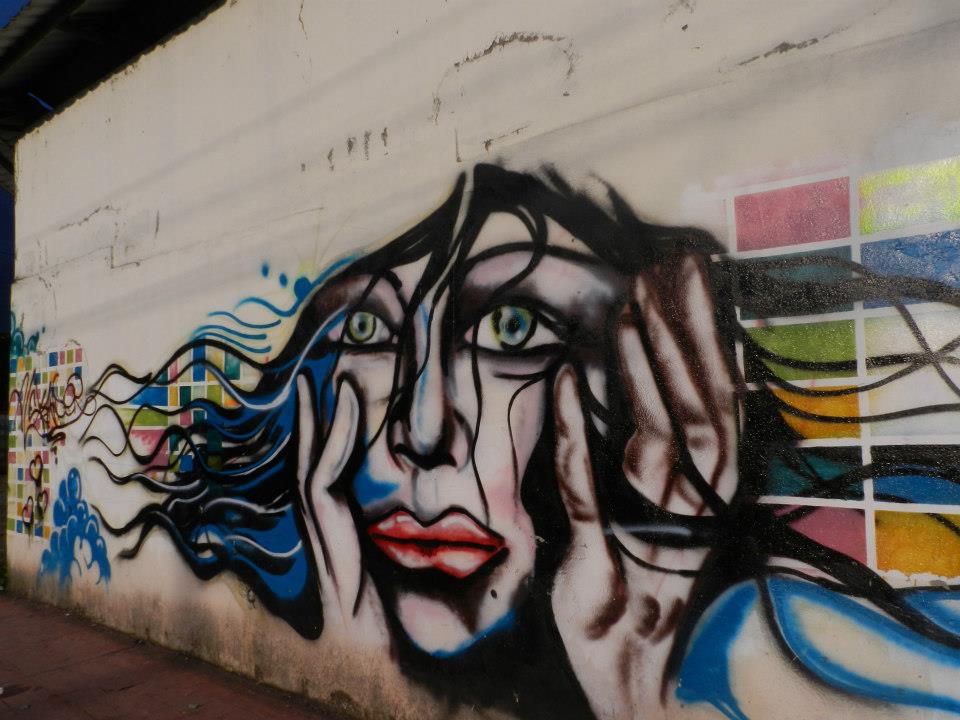

No Comments